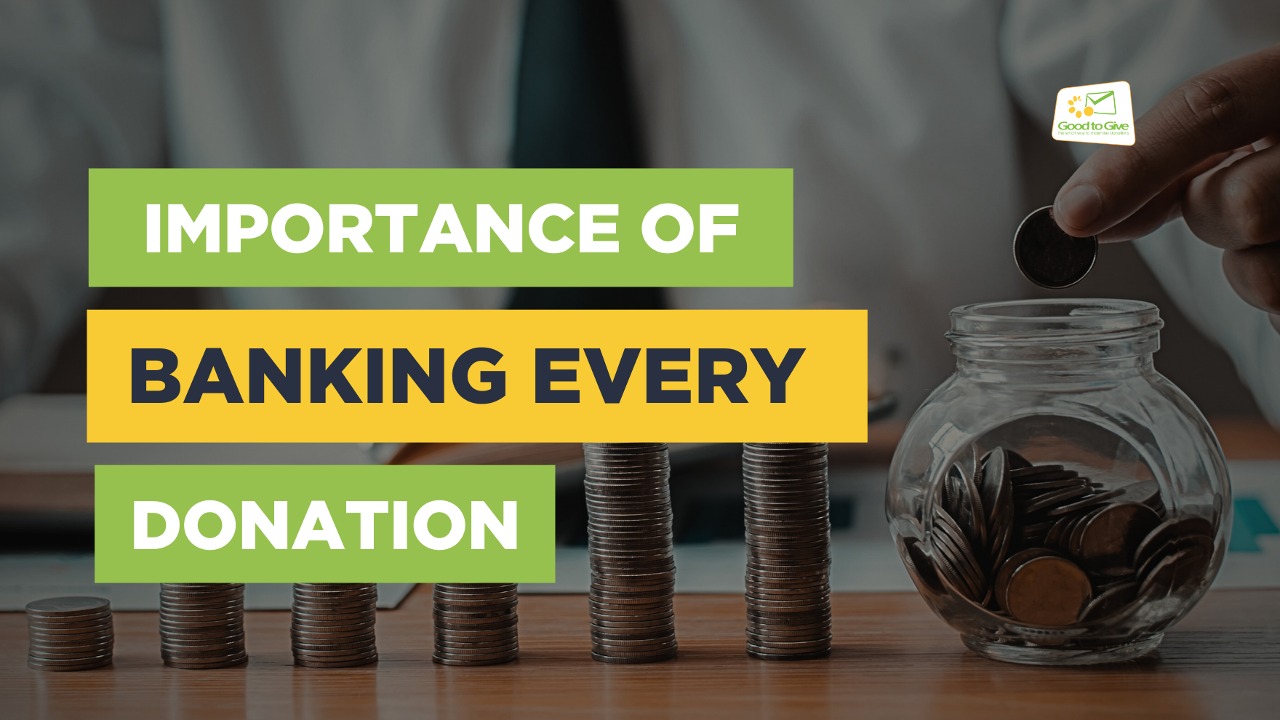The Importance of Churches Banking Every Donation: Ensuring Transparency and Accountability
VAT IN THE UK: ARE CHARITIES TRULY EXEMPT FROM VAT?
November 22, 2023
Can High Income Tax Payers Benefit from Gift Aid Relief?
March 5, 2024When it comes to non-profit organisations, transparency and accountability are not just ideals but necessities. This is particularly true for churches, which serve as pillars of the community and stewards of trust. One of the fundamental practices that uphold this integrity is the consistent banking of every donation received. This blog will highlight why banking every donation is vital to the lifeline of the church.
Embracing transparency
Similar to non-profit organisations, churches are under the public eye when it comes to their finances as well as income and expenses. In addition, they are under scrutiny from regulatory bodies. Transparent financial records are important to build trust and confidence among congregants and the broader community. When every donation is deposited into the church’s bank account, it becomes part of a financial system that can be easily checked, audited and verified by anyone, including stakeholders.
Accountability
Churches are answerable to regulatory bodies such as The Charity Commission. Each donation received must be methodically recorded and accounted for, to ensure that standards are met and to reinforce the church’s commitment to transparency. By banking every donation, churches show that they follow the rules and are dedicated to ethical financial practices.
Impact on financing
Keeping an accurate record of income directly impacts the church’s ability to get financing. Whether seeking loans for expansion projects or securing grants for community initiatives, accurate financial records are essential for demonstrating financial responsibility and viability. Banks and lending institutions rely on comprehensive financial data to assess a church’s financial stability. Banking every donation increases the church’s chance of securing financing for important projects and initiatives.
Having a paper trail for HMRC audits
In the event of an audit by HMRC, it is important that the church’s banking records accurately reflect all specified income. Failure to do so could lead to penalties and it could also diminish the church’s credibility, potentially hindering its ability to fulfil church missions effectively. Banking every donation guarantees that churches have a clear paper trail of their income, making it easier to meet auditing requirements and demonstrate compliance with tax regulations.
Avoiding cash related hassles
To keep their finances in order, churches shouldn’t use cash from members to cover expenses. All donations received from members should be banked as soon as possible and payments should be made out of the church’s bank account to promote transparency and accountability in financial transactions. By avoiding cash payments, churches minimise the risk of fraudulent activity, protect the integrity of their financial operations and safeguard the trust of congregants.
Using petty cash
Should you need to maintain a petty cash account within your church, it is important that withdrawals made against the account are properly documented. The petty cash float should be withdrawn from the church’s bank account, and a receipt signed by the recipient must be obtained for each payment from the petty cash balance. It is important to note that maintaining a petty cash account requires additional security and only authorised personnel should be allowed to make payments.
Upholding Financial Integrity
The practice of banking every donation is not merely a matter of financial management; it is a testament to a church’s commitment to transparency and accountability. By sticking to this practice, churches maintain the principles of good governance and demonstrate their unwavering dedication to serving their congregants and communities with honesty and integrity. Like non-profit organisations navigating the intricacies of financial management to fulfil their missions, churches must embrace these principles to accomplish honest financial accounting and earn the trust of their congregation.
Contact GoodtoGive for Gift Aid Support
At GoodtoGive, we provide an affordable end-to-end, charity accounting service for faith-based organisations and churches. Many charitable organisations have gained the tools required to streamline their finances and make the most of donations. Our aim is to simplify the accounting process and make your life easier, giving leaders and Trustees the peace of mind. If you are looking to claim Gift Aid for a charity GoodtoGive can help you. Many charitable organisations have gained the tools required to streamline their finances and make the most of donations. Our aim is to simplify the accounting process and make your life easier, giving leaders and Trustees the peace of mind. To find out more about our gift aid management service and charity accounting services, get in touch with a member of our team at 020 7731 2041.




